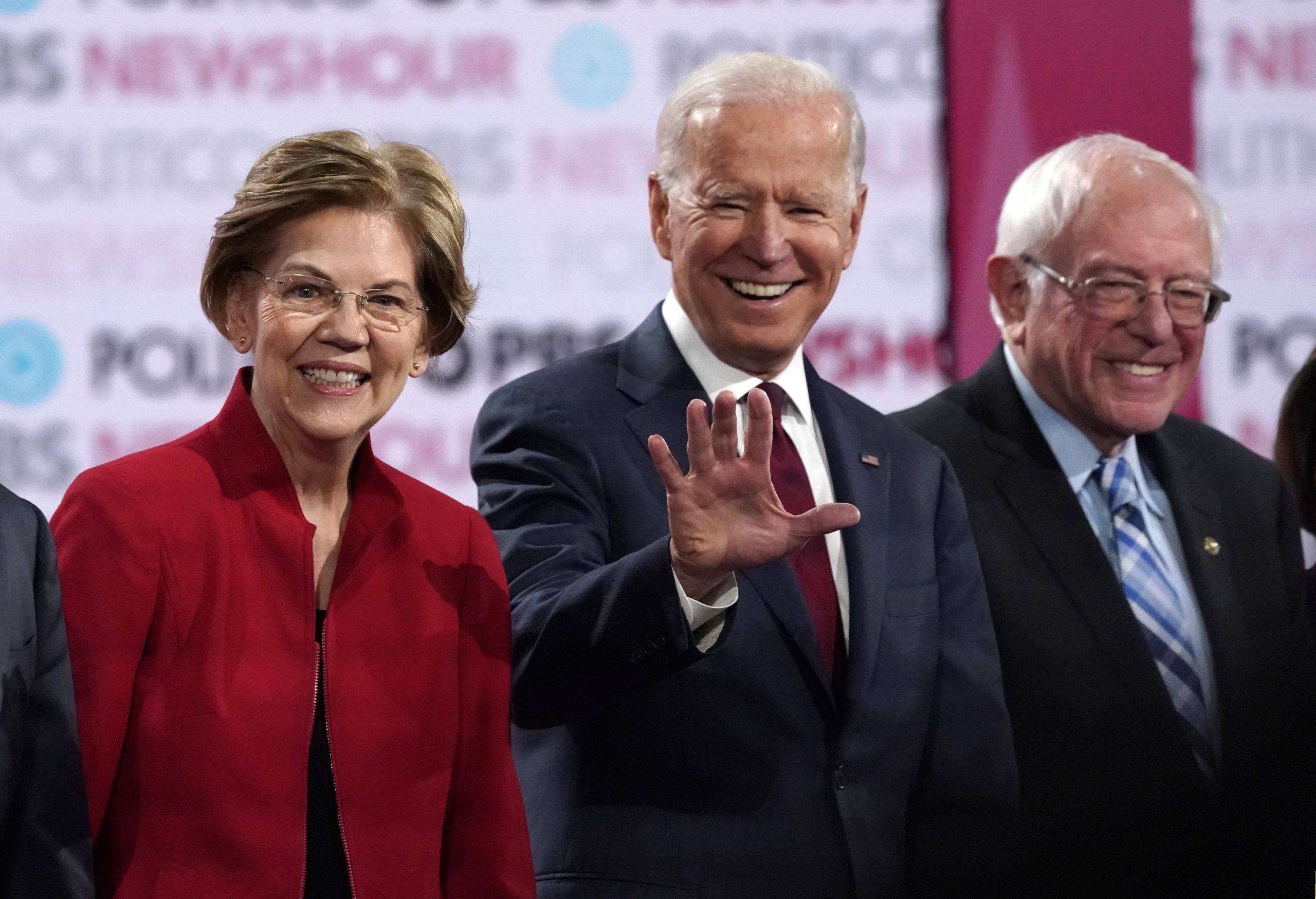The Democratic Party will officially nominate a 2020 presidential candidate at its convention in July, a process that began with the Iowa caucuses, continues on Tuesday in New Hampshire and ends with the Puerto Rico primary in June.
The goal is to amass on a state-by-state basis the 1,991 delegates needed to secure the nomination on the first ballot at the convention in Milwaukee. A candidate must get at least 15% of the vote statewide or in an individual congressional district to be awarded delegates. The winner will face Republican President Donald Trump in the Nov. 3 election.
The nominating process will be much different this time around after Democrats made changes aimed at increasing participation and ensuring transparency.
The following explains some key changes.
FEWER CAUCUSES
In 2020, Democrats scheduled caucuses in four states – Iowa, Nevada, North Dakota and Wyoming – far fewer than the 18 conducted in states and territories in the 2016 campaign.
Caucuses require voters to attend a lengthy meeting in person and vote in the open by raising their hands or gathering with fellow supporters. The process has been criticized as undemocratic because it can dampen participation and is subject to intimidation. In-person meetings at a set time can often be difficult for shift workers or parents to attend.
Iowa’s Feb. 3 caucuses took days to settle after technical problems led to delays in reporting results.
The caucus system favors candidates with a strong, active base instead of broader support. U.S. Senator Bernie Sanders of Vermont, for example, significantly outperformed his rival, Hillary Clinton, in caucuses in the 2016 campaign.
In primaries, voters show up to their polling places and check the box for the candidate of their choice.
SUPER TUESDAY TO PLAY A BIGGER ROLE?
The first states to vote – Iowa and New Hampshire – have always had an outsized role in picking nominees.
This year, “Super Tuesday,” when 14 states will vote on March 3, could hold more sway.
California moved its primary to Super Tuesday from early June. With Texas already on the Super Tuesday calendar, the switch means the nation’s two most populous states, with a total of 643 delegates – both with large Hispanic populations – will vote on the same day.
South Carolina may see the biggest drop in attention because of the rise of Super Tuesday. Traditionally, South Carolina has held the first Southern primary, and is the first state with a sizable black population to vote.
This year, South Carolina votes on Feb. 29, with Super Tuesday just three days later. Most polling in the state has former Vice President Joe Biden with a sizable lead.
Activists in South Carolina say they have already seen a drop in visits from candidates this year. If candidates are forced to choose between campaigning in a state where they are way behind in polls or trying to bolster their fortunes in Super Tuesday states, it is possible South Carolina could receive little attention from many candidates.
WHEN CAN WE EXPECT A DEMOCRATIC NOMINEE?
Democrats are looking at a more compressed calendar this year than in past presidential nominating cycles, and the sped-up voting could produce a nominee more quickly.
When more than two dozen candidates initially announced intentions to run, Democrats were privately concerned that the large field could result in a contest that stretched for months.
Compounding that fear was a concern of a repeat of 2016, when Sanders refused to concede even long after it was clear he could not win.
But the field of Democratic hopefuls has narrowed drastically. On the eve of the New Hampshire vote, 11 Democrats remain, with only six of them polling nationally above 5%.
The compressed calendar may help one Democrat consolidate support more quickly. After Super Tuesday, nearly 30% of the eligible U.S. population will have had a chance to participate in picking the nominee. By the end of March, elections covering well over 50% of the party’s delegates will have taken place.
There is one candidate trying to throw a wrench into anyone’s efforts to ride momentum in the early primary contests to victory on Super Tuesday: Michael Bloomberg.
The billionaire media mogul and former New York mayor entered the race late and has been pumping millions of dollars of his own wealth into trying to be competitive on Super Tuesday. If he picks up enough delegates on Super Tuesday, it could make it harder for another candidate to consolidate support and secure the nomination.
WHAT ABOUT SUPERDELEGATES?
Superdelegates are elected Democratic officeholders who are part of each state’s delegation but are not committed to vote based on the outcome of the state’s nominating contest. All Democratic members of Congress and state governors are superdelegates.
In 2016, many superdelegates announced early support for Clinton, drawing criticism that the party was tipping the scales in her favor.
Superdelegates have not been eliminated in 2020, but new rules limit their influence. This cycle, they will likely not vote on the first ballot at the convention.
To win on the first ballot, a candidate must secure the majority of the party’s 3,979 pledged delegates available during the nominating contests leading up to the Democratic convention.
If the front-runner has fewer than 1,991 delegates, the convention will hold a second vote. On subsequent ballots, all delegates become unpledged and superdelegates can also vote.
Then, a majority of all 4,750 delegates will be needed to secure the nomination. No Democratic convention has gone beyond a single ballot since 1952.
If a candidate wins a supermajority of pledged delegates – or about 2,378 – then superdelegates are permitted to vote on the first ballot.
(Reporting by Ginger Gibson and Jarrett Renshaw; Editing by Peter Cooney)

























 Continue with Google
Continue with Google